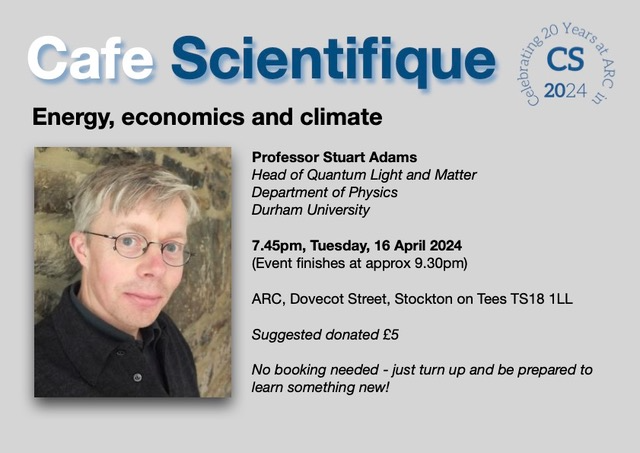Dynamic Pricing
ARC’s policy is to set ticket prices based on demand, like budget airlines, which means we set a price when the event goes on sale and then sometimes put the price up or down depending on how the show is selling. Usually, the price will increase as we get closer to the event, so it is advantageous to book in advance, although sometimes we will put special offers on and reduce the price. Our website will always show the current ticket price.

ARC’s theatre and dance performances are priced on a Pay What You Decide basis, which means you don’t have to pay until after you have seen a show!
We want to encourage more people to come and see shows at ARC, more often. Pay What You Decide not only allows you to pay what you can afford, rather than a fixed ticket price, but also removes the financial risk of buying a ticket for a show in advance without knowing whether you are going to enjoy it or not.
Tickets are available to book in advance as usual, but there is no obligation for you to pay until after you have seen the show. You can then decide on a price which you think is suitable based on your experience, which means if you haven’t enjoyed it at all, you don’t have to pay anything.
All money collected will help ARC pay the artists who have performed, and we therefore hope you will give generously.
Please ensure you have arrived and collected your tickets 15 minutes before the show starts in order to secure your seats. At the end of the show, you can decide what to pay, either by cash on the door or by card at the Box Office.
Professor Stuart Adams
Head of Quantum Light and Matter
Department of Physics, Durham University
We’re delighted to welcome Professor Stuart Adams back to the Café for what promises to be a fascinating evening. Professor Adams brought props with him in April to illustrate his talk Looking at the Sun to Quantum Computing.
Stuart says – In 1822 Joseph Fourier described the question of the Earth’s temperature distribution as one of the most important and most difficult of all science. Two hundred years later, Fourier’s question remains as important and fascinating as ever. But bizarrely, until this year, Fourier’s question was not addressed in the Durham Physics Undergraduate curriculum. In this talk I will focus on why I wanted to change that and what I think university undergraduates, and the Cafe audience, need to know.
About our speaker:
Stuart Adams studied physics at Hertford College, Oxford University. He obtained a Masters by Research from McMaster University in Canada followed by a PhD from Strathclyde University, Glasgow. After post-doctoral work in Germany and the US, he began a research group at Durham in October 1995. His main interests are in experimental quantum optics, in particular light-matter interactions in strongly-interacting atomic systems. He was awarded the Thomson Medal by the Institute of Physics (IOP) in 2014 and the Holweck Prize by the French Physical Society and IOP for pioneering work on quantum optics.
